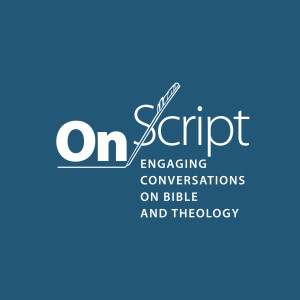
- Podcast Features
-
Monetization
-
Ads Marketplace
Join Ads Marketplace to earn through podcast sponsorships.
-
PodAds
Manage your ads with dynamic ad insertion capability.
-
Apple Podcasts Subscriptions Integration
Monetize with Apple Podcasts Subscriptions via Podbean.
-
Live Streaming
Earn rewards and recurring income from Fan Club membership.
-
Ads Marketplace
- Podbean App
-
Help and Support
-
Help Center
Get the answers and support you need.
-
Podbean Academy
Resources and guides to launch, grow, and monetize podcast.
-
Podbean Blog
Stay updated with the latest podcasting tips and trends.
-
What’s New
Check out our newest and recently released features!
-
Podcasting Smarter
Podcast interviews, best practices, and helpful tips.
-
Help Center
-
Popular Topics
-
How to Start a Podcast
The step-by-step guide to start your own podcast.
-
How to Start a Live Podcast
Create the best live podcast and engage your audience.
-
How to Monetize a Podcast
Tips on making the decision to monetize your podcast.
-
How to Promote Your Podcast
The best ways to get more eyes and ears on your podcast.
-
Podcast Advertising 101
Everything you need to know about podcast advertising.
-
Mobile Podcast Recording Guide
The ultimate guide to recording a podcast on your phone.
-
How to Use Group Recording
Steps to set up and use group recording in the Podbean app.
-
How to Start a Podcast
-
Podcasting
- Podcast Features
-
Monetization
-
Ads Marketplace
Join Ads Marketplace to earn through podcast sponsorships.
-
PodAds
Manage your ads with dynamic ad insertion capability.
-
Apple Podcasts Subscriptions Integration
Monetize with Apple Podcasts Subscriptions via Podbean.
-
Live Streaming
Earn rewards and recurring income from Fan Club membership.
-
Ads Marketplace
- Podbean App
- Advertisers
- Enterprise
- Pricing
-
Resources
-
Help and Support
-
Help Center
Get the answers and support you need.
-
Podbean Academy
Resources and guides to launch, grow, and monetize podcast.
-
Podbean Blog
Stay updated with the latest podcasting tips and trends.
-
What’s New
Check out our newest and recently released features!
-
Podcasting Smarter
Podcast interviews, best practices, and helpful tips.
-
Help Center
-
Popular Topics
-
How to Start a Podcast
The step-by-step guide to start your own podcast.
-
How to Start a Live Podcast
Create the best live podcast and engage your audience.
-
How to Monetize a Podcast
Tips on making the decision to monetize your podcast.
-
How to Promote Your Podcast
The best ways to get more eyes and ears on your podcast.
-
Podcast Advertising 101
Everything you need to know about podcast advertising.
-
Mobile Podcast Recording Guide
The ultimate guide to recording a podcast on your phone.
-
How to Use Group Recording
Steps to set up and use group recording in the Podbean app.
-
How to Start a Podcast
-
Help and Support
- Discover

Episode: What can the language we use for “them” tell us about who “we” are? What do a group’s descriptions of outsiders tell us about the values and self-perceptions of the in-group? The New Testament uses a range of designations for outsiders and, at first blush, some of the terms, like “sinner,” “unbeliever,” and “unrighteous,” seem unusually harsh to our ears. In an age where inclusivity rules the day, the New Testament authors seem woefully out of step. Fortunately, Paul Trebilco’s new research sheds some much-needed light on this important topic. In this episode, Professor Paul Trebilco talks with Erin about outsider designations in the New Testament, New Zealand, being in a gang, jazz musicians, and more.
Guest: Paul Trebilco (PhD, University of Durham), is Professor of New Testament at the University of Otago. He has published work on the Jewish and Greco-Roman backgrounds to the New Testament, the Acts of the Apostles, the apostle Paul, early Christians in Ephesus, the relationship of Scripture and Church tradition, and the Self-designations used by the earliest Christians in the New Testament. In 2017, Paul was elected as a Fellow of the Royal Society of New Zealand.
The Book: Paul Trebilco, Outsider Designations and Boundary Construction in the New Testament (Cambridge: Cambridge University Press, 2017). Publisher's Description: What terms did early Christians use for outsiders? How did they refer to non-members? In this book-length investigation of these questions, Paul Trebilco explores the outsider designations that the early Christians used in the New Testament. He examines a range of terms, including unbelievers, 'outsiders', sinners, Gentiles, Jews, among others. Drawing on insights from social identity theory, sociolinguistics, and the sociology of deviance, he investigates the usage and development of these terms across the New Testament, and also examines how these outsider designations function in boundary construction across several texts. Trebilco's analysis leads to new conclusions about the identity and character of the early Christian movement, the range of relations between early Christians and outsiders, and the theology of particular New Testament authors.
More Episodes
 2025-04-01
2025-04-01
 2025-03-20
2025-03-20
 2025-01-22
2025-01-22
 2024-12-30
2024-12-30
 2024-12-16
2024-12-16
 2024-12-02
2024-12-02
 2024-09-18
2024-09-18
 2024-09-02
2024-09-02
 2024-08-05
2024-08-05
Create your
podcast in
minutes
- Full-featured podcast site
- Unlimited storage and bandwidth
- Comprehensive podcast stats
- Distribute to Apple Podcasts, Spotify, and more
- Make money with your podcast
It is Free
- Privacy Policy
- Cookie Policy
- Terms of Use
- Consent Preferences
- Copyright © 2015-2025 Podbean.com




